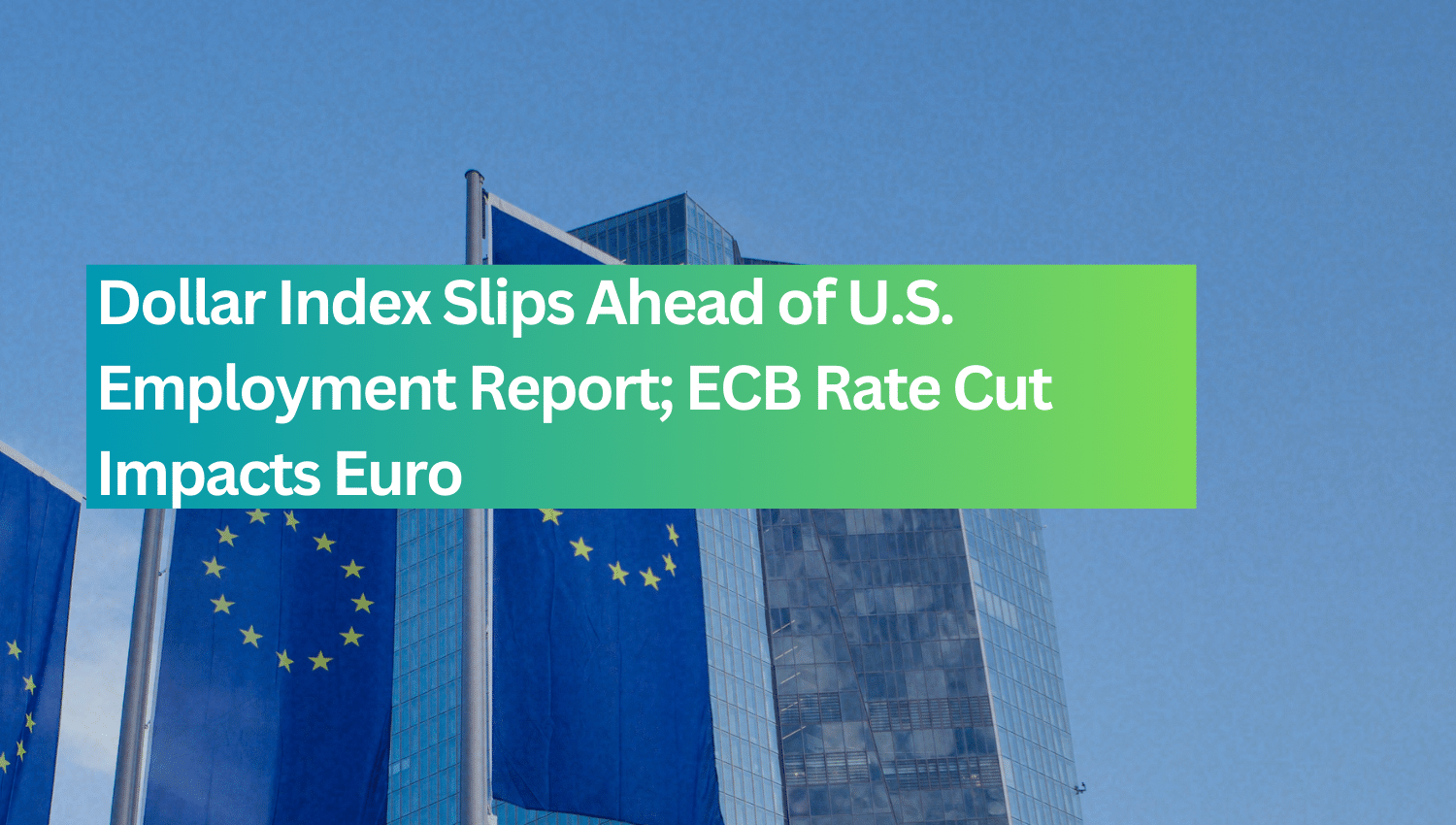Macro Outlook

Dollar Index Movement
The dollar index slipped ahead of Friday's U.S. employment report, influenced by recent European Central Bank (ECB) rate cuts and the anticipation of further data-dependent easing.
Euro Gains on ECB Interest Rate Decisions
EUR/USD rose by 0.2% as bund-Treasury yield spreads advanced after the hawkish ECB rate cut. The euro neared resistance around 1.0900. ECB President Christine Lagarde highlighted that real interest rates had risen since last September, justifying the rate cuts despite increased inflation projections. The rise in bund yields and the euro was attributed to the unwinding of trades betting against the ECB's data-dependence and a broader macro view that easing would support regional growth. Despite weaker-than-forecast German industrial orders and euro zone retail sales for April, the slightly more expansionary May HCOB results suggested improvement.
Focus on U.S. Payrolls Report
Attention is now on Friday's payrolls report. Private payrolls are forecast to rise by 170k, while overall non-farm payrolls (NFP) are expected to increase by 185k. The jobless rate is projected to remain at a historically low 3.9%, with average hourly earnings up 0.3% month-on-month. The recent JOLTS report indicated labor market cooling. The upcoming jobs data could influence Treasury yields and the dollar's movement.
Yen Weakens Amid BoJ Policy Signals
USD/JPY fell by 0.25% after encountering resistance near recent highs. Early slides to 155.35 were triggered by Bank of Japan (BoJ) Governor Kazuo Ueda's comments on reducing JGB purchases. Although the BoJ is expected to keep rates steady, markets are discounting 10bp rate hikes in September and December. Treasury-JGB yield spreads rose but remain below earlier highs. A strong payrolls report could push USD/JPY towards late and early May highs associated with previous BoJ interventions.
Sterling Stability Amid Mixed UK Data
Sterling remained flat after recovering from the day's low of 1.2763. This followed a Bank of England (BoE) survey indicating a sharp fall in UK firms' wage growth. Mixed UK construction and composite PMI data also influenced stability. Sterling remains close to March's peak of 1.28935, but bearish divergence and potential BoE rate cuts persist.
Summary
The dollar index's movements are influenced by upcoming U.S. employment data and recent ECB rate cuts. The euro gained slightly, supported by higher bund yields and hawkish ECB comments, despite regional economic struggles. The yen showed some weakness, though intervention and upcoming BoJ policies kept USD/JPY movements cautious. Sterling's stability was affected by mixed UK economic data and BoE rate expectations. The upcoming U.S. payrolls report and euro zone inflation data will be key determinants of currency movements in the near term, impacting market expectations for central bank policies.
Open an account today to unlock the benefits of trading with CMS Financial

